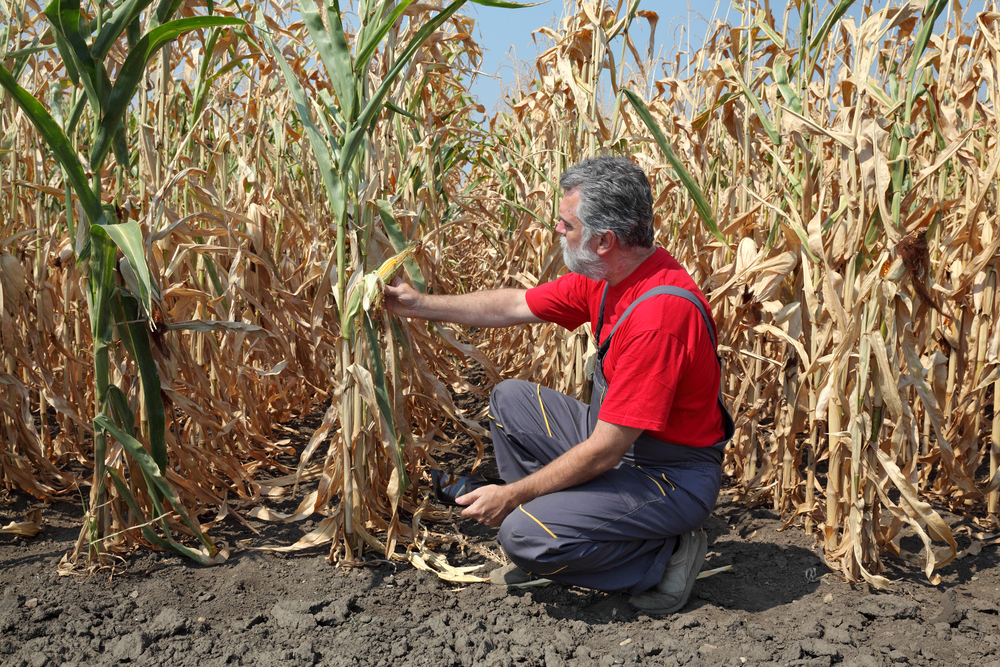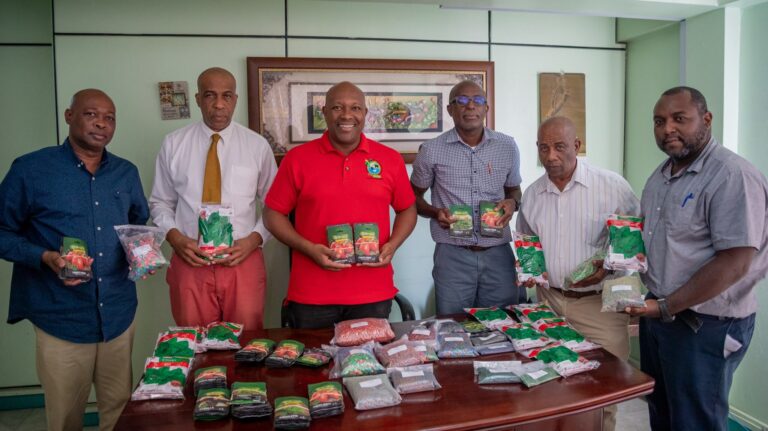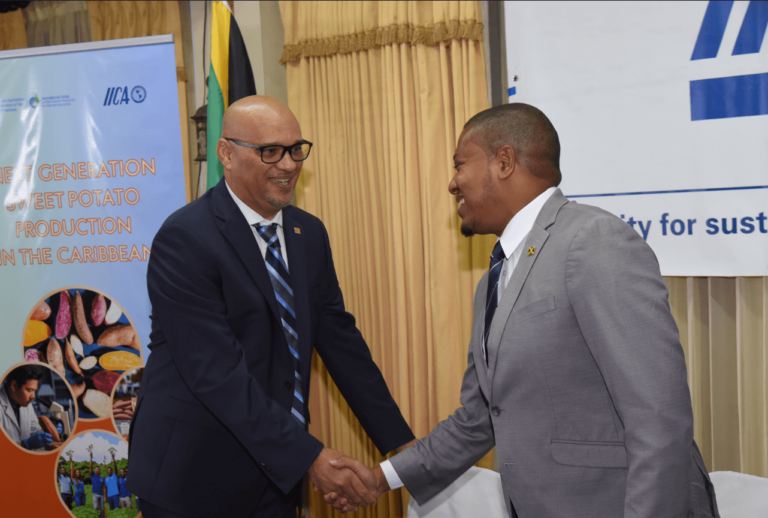The initiative seeks to assist small-scale producers of basic grains in one of the world’s most vulnerable regions to climate change, by boosting their productivity and guaranteeing food security.

Corridor.
San Jose, 13 March 2019 (IICA) –About 3,000 families that produce basic grains in the Central American Dry Corridor, one of the world’s most vulnerable regions to climate change, will be the primary beneficiaries of a project to be implemented this year by the European Union (EU) and the Inter-American Institute for Cooperation on Agriculture (IICA).
The project will transfer innovative technology through multi-strata agroforestry systems, with the aim of strengthening resilience to climate variability as well as improving food security in the region.
Multi-strata agroforestry systems combine the planting of trees or forage with food production. By implementing this technique, small-scale bean and corn producers in the region will be able to increase their yields while protecting water sources, improving soil quality, boosting biodiversity and generating additional sources of income.
This five-year initiative forms part of the EU’s Program for Development and Smart Innovation through Research in Agriculture (DeSIRA). The initiative will integrate knowledge management, innovation, as well as the validation of highly resilient technologies, agroforestry systems adapted to basic grains, and other production activities. The project will also be geared toward strengthening value chains, implementing strategies for the adoption of different technologies, as well as strengthening the organizational capacity of small-scale producers to better market their products.
“There is no one-size-fits-all solution. We must develop opportunities for collaboration that allow for developing simple, comprehensive solutions based on each country’s reality, in order to overcome challenges in areas as complex as the Central American Dry Corridor,” stated Luis Sonzini, Regional Cooperation Advisor of the European Union Delegation in Nicaragua and Panama.
“Central American countries do not yet possess the conditions they require to adequately resolve the food security problems they face on their own. Now is the time to generate synergies, replacing national efforts with the strength of a regional partnership in which agroforestry systems represent not only a pathway, but the future itself, and a step in the right direction,” stated Manuel Otero, Director General of IICA.
The project is currently being developed by a group of specialists in the fields of project development, rural development, sustainable production systems and climate change from the EU, IICA, the Central American Integration System (SICA), the World Food Program, research centers, European international cooperation agencies and non-governmental organizations. The experts recently met in San Jose, Costa Rica to make progress towards implementing sustainable food production systems.
This new project it is founded on the experiences and good practices of various organizations that have conducted work in matters related to agrifood development in this region of Central America. Even the most vulnerable groups have been involved in developing the project’s strategy, to ensure that the benefits generated are broad in scope. The experience acquired thus far will also strengthen producers’ organizations by facilitating the adoption of new technologies.
“One important component of the project involves analyzing the feasibility of these innovations for producers, to guarantee their adoption and sustainability. We must also take advantage of existing partnerships, utilize resources in an efficient manner, and incorporate the initiatives that are currently underway in order to address this important challenge in the Central American Dry Corridor,” explained Erick Quirós, Special Affairs Coordinator for the Central Region.
The Dry Corridor
The Central American Dry Corridor is a tropical dry forest region, 156 million square kilometers in area, stretching from the west coast of Chiapas (Mexico) to the east coast of Panama. The close to 30 million inhabitants of this region are beset with social problems that are intrinsically linked to extreme climate phenomena.
Guatemala, El Salvador, Honduras and Nicaragua are the countries most affected by the onslaught of climate change, reporting a decline in rainfall of between 30 to 40 percent during the El Niño phenomenon, and in which tropical storms devastate production activities, while integrated policies to efficiently manage limited water resources are deficient or non-existent.
Agriculture plays a critical role in this region, employing up to 42 percent of the population in the food production chain. More than 40 percent of young people are also involved in agricultural ventures. However, the weather conditions, poor management of natural resources, high unemployment and low levels of schooling, are contributing factors to a situation in which 1 in 3 people have access to only one meal per day.
Considering that 50 percent of producers of basic grains in the region are based in this area, and that the diet in these countries is heavily dependent on these crops, initiatives such as the implementation of a multi-strata agroforestry system address the palpable need to provide food and participatory mechanisms that can positively impact the economy.
More information:
Erick Quirós, Special Affairs Coordinator for the Central Region, IICA.










